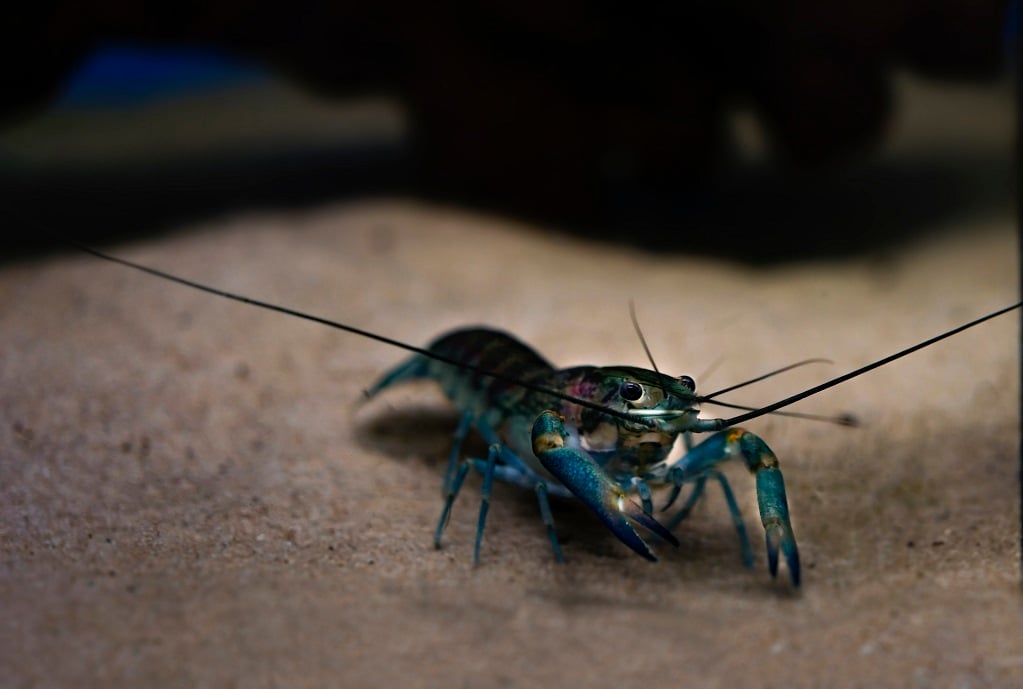
- The red-claw crayfish is an alien invasive species from Australia and carries invasive parasites.
- The crayfish is spreading rapidly in the Kruger National Park's waters, having first been spotted in the reserve in 2016.
- No one is allowed to be in possession of the crayfish or farm with it.
- For climate change news and analysis, go to News24 Climate Future.
The red-claw crayfish, an alien invasive species, is making its way rapidly through the freshwaters of Kruger National Park, SANParks has warned.
The crayfish, which is actually from Australia, were first spotted in the Komati River, which runs through South Africa, Eswatini and Mozambique, in the early 2000s.
In South Africa, the red-claw crayfish is classified as a Category 1b invasive in the National Environmental Biodiversity Act. This means no one can be in possession of the species and cannot farm with them.
A farmer was denied permission to establish an aquaculture facility (or fish farm) with these crayfish in South Africa, but went ahead with it in Eswatini. A 2017 study indicated that the invasion of the crayfish in South Africa through the Komati River resulted because the species escaped from the fish farm in Eswatini.
The crayfish became more abundant in the Komati River, and then, in 2016, the first sighting of the crustacean was made in Kruger National Park. The crayfish were found below the Van Graan Dam on the Crocodile River and the border of the park, according to SANParks.
In May last year, SANParks set up crayfish traps in the Crocodile River – about 50km away from Van Graan Dam to track how far they spread. Three of the crayfish species were captured – essentially suggesting that they spread at a rate of 7km per year, which is a fairly rapid rate according to SANParks' freshwater ecology scientist Dr Dumisani Khosa:
Khosa also noted that the rivers in the Kruger National Park are transboundary, and start from outside the park and go into neighbouring countries. Only a section of the Crocodile River is within the park.
The African continent has no native crayfish freshwater species. However, invasives have been introduced mainly through farming or keeping as pets.
Dr Ana Luisa Nunes, who has done research on invasive crayfish, pointed out in various studies that they're spreading in parts of southern Africa, including Eswatini, Zambia, Mozambique and Zimbabwe. As far back as 2016, Nunes also warned that the Australian red-claw risks moving into the Okavango Delta, a World Heritage Site.
Professor John Measey from the Centre for Invasion Biology at Stellenbosch University said that the species can disperse through the flow of the river, as well as against the flow of the river. They are also capable of moving on land and into dams. "They are not constrained to the waterbody you find them in. They are a problematic group of species," he told News24.
Crossborder invasions through rivers are also a huge risk, he pointed out.
READ | Red list: These are the fish you shouldn't be eating – but may still find on a restaurant menu
"The impacts of the Australian red claw into the freshwater ecosystems can be severe," Khosa warned.
"Recent research in South Africa has shown that invasive crayfish outperform the native crabs, and this may lead to the displacement or replacement of the species as it has been recorded in other systems," Khosa said.
Red-claw crayfish consume high numbers of fish fry and plant material in comparison to native crabs. "They also negatively affect fisheries through scavenging and destruction of fishing gear," SANParks researchers said previously.
In Lake Kariba, the crayfish is known to have caused losses for Zimbabwean fisheries of up to $512 352 (around R10 million) a year.
Invasive parasites in tow
These crayfish also carry invasive parasites that can be transferred or spill over to native species, like freshwater crabs.
"What is of ecological concern is that the spillover may affect some of the endangered species, including freshwater fishes, crabs, and amphibians listed in the IUCN (International Union for Conservation of Nature) red list," said Khosa.
In South Africa, the red-claw crayfish has introduced an invasive flatworm parasite - temnocephalan ectoparasite - according to a 2013 study by North West University researchers.
"As well as parasitising crayfish, temnocephalans have been reported to also parasitise freshwater crabs and shrimps, molluscs and turtles and isopods (woodlice)," the study read.
It may become difficult to control the crayfish once they invade an ecosystem, especially considering how connected rivers are.
But Khosa highlighted that there are several weirs within rivers that can act as barriers for migrating species. There is also anecdotal evidence that some eel may prey on these crayfish, but it is still to be tested.
Measey said that often traps are set up to capture the crayfish, but these have a limited effectiveness. This is not just unique to South Africa, but also a problem in the US and Europe, he noted.
Invasions of these crayfish are detrimental to the ecosystems of the continent, because these are not native species, he added.
"Essentially no one has managed to eliminate them and remove them from their invasive status, which is why South Africa has such strong laws against such invasive species. When individuals decide they don't want to follow the law, these are the consequences," Measey said.
This article has been updated to remove a reference that incorrectly attributed burrowing behaviours to Australian red-claw crayfish. News24 regrets the error.




 Publications
Publications
 Partners
Partners












